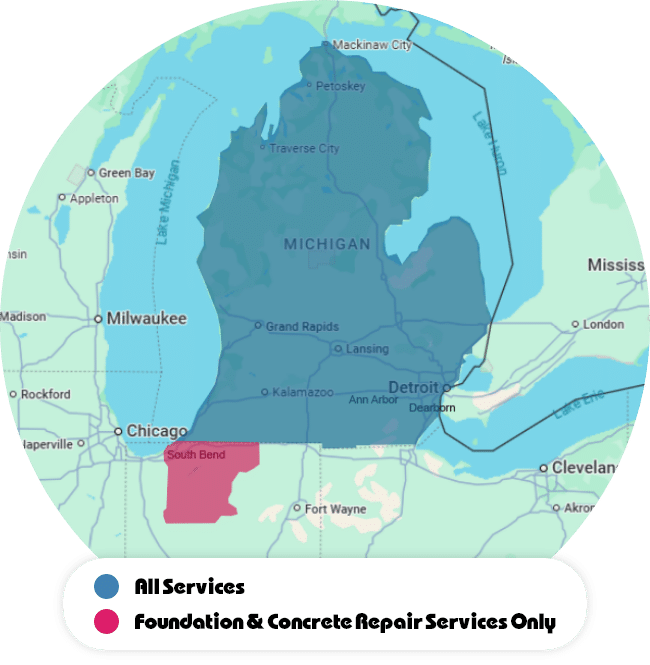What Do Your Sloping Floors Mean?

Have you noticed that your desk chair just won’t stay put? Maybe a door or drawer keeps swinging open? These are all little annoyances, but they can add up to a big problem.
Sloping floors are barely noticeable to the naked eye - it’s things like the above that finally make you realize something’s going on. A sloping floor doesn’t always mean that your whole house is sinking, but it does mean it’s time to call in an expert before things get worse. Let's go over the two main types of sloping floors.
Localized/”Low Points”
If you’ve only noticed the problem in one spot - maybe a dip in front of the fireplace or a soft spot in your kitchen floor, you’re likely dealing with broken, missing or otherwise compromised joists below the house. Below the subfloor, joists run the length of the floor to support the home, and if they get compromised, sinking will be noticeable. Joists fail for a variety of reasons - mold and water damage can cause them to break down, or fixtures like a fireplace or chimney can add weight that wasn’t accounted for in the build.
Reinforcing inadequate joists can be accomplished by sistering steel beams to the failing areas and supporting the sistered joist with a SmartJack crawl space support post. SmartJacks can also be used to replace missing or inadequate support posts to provide stability and safety to the home.
Widespread/”Whole House”
If walking from one end of your home to the other is more of an adventure than you’d like, or your dog can play fetch by himself by letting a ball roll down the hall, it’s likely that you’re looking at a problem caused by foundation settlement. The biggest cause of foundation settlement is soil movement, so that’s what we’ll use as an example here.
Now, soil can be expansive or compressive, and both can wreak havoc on your foundation. When soil expands due to increased moisture content, it exerts pressure on foundation walls, causing bowing, cracking, and leaning. Wall movement can lead to sloping floors as wall support shifts.
Soil compresses when it dries out - say, in a long term drought - and shrinks away from the foundation slab, leaving a void that causes the slab to settle or even crack. This settlement continues up the affected side of the house until the whole structure has a slight lean to it, and depending on the severity of settlement and longevity of the problem, the safety of the home can be compromised.
We have a variety of products to stabilize bowing walls and combat against soil expansion, including PowerBraces and GeoLock wall anchors. Both products are installed to stabilize walls with the hope that, over time, they can be tightened and straighten the walls.
For slab settlement, we can install piers that are secured in stable soil. Piers are attached at the footing of the home and bear the weight to avoid further settlement in unreliable soil and can be used to attempt to lift the home to its prior position.
Regardless of what is contributing to your sloping floors, it’s important to pay attention to the signs and let a professional address the cause. Our system design specialists are trained to recognize problems and provide solutions that work for you and your home. Call and schedule your free inspection today.









